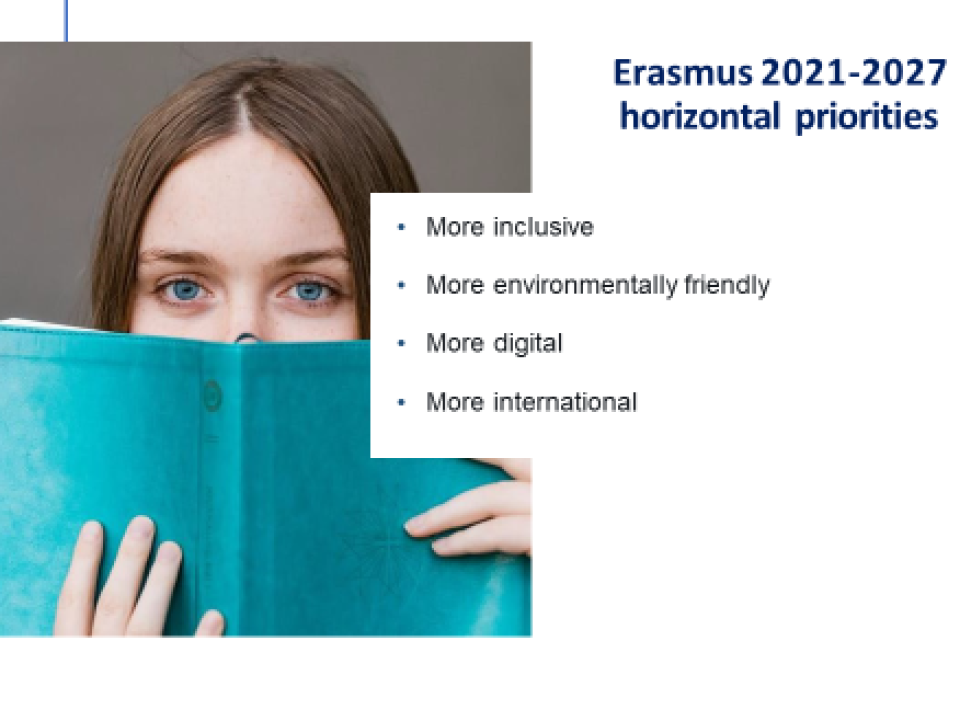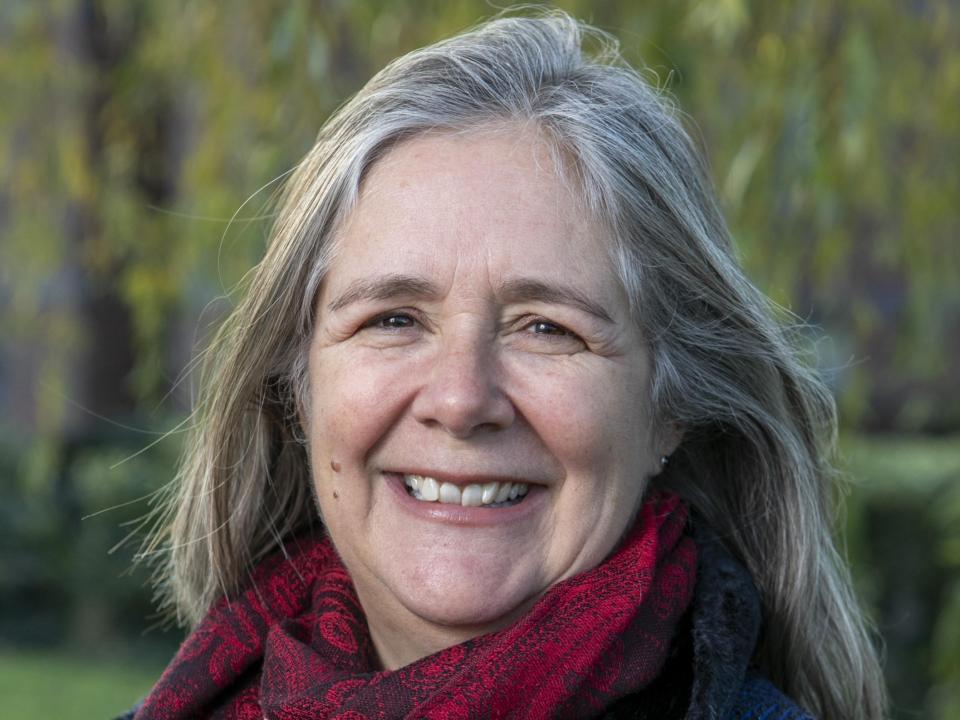
Research Newsletter - Issue 69: Spotlight

Erasmus+ is the flagship EU funding programme for education and training. First launched in 1987 as an exchange programme for students in higher education, it now offers a wide range of cooperation opportunities for institutions and organisations across civil society. The European Commission launched the 2022 Call for Proposals on 24th November with a budget of nearly €3.9 billion for the coming year.

Erasmus+ Priorities
Objectives and Priorities of Erasmus+
The Programme aims to contribute to sustainable growth, quality jobs and social cohesion, to driving innovation, and to strengthening European identity and active citizenship. It prioritises inclusion and diversity; digital transformation; and the environment and the fight against climate change.
Why do Erasmus+?
Erasmus+ projects provide opportunities to develop and implement ideas and practices in an international – and often inter-sectoral - consortium. The range of topics that can be addressed through an Erasmus+ project is very open, and at DCU there is a particularly rich diversity of subject areas in our awarded E+ projects including health, pedagogy, politics, the social economy, and digitalisation, to name but a few. As well as benefiting from funding to support the activities within the project, participants have found that participating in E+ projects helped them to develop a public profile and led to publications and further research and funding activities.
Erasmus+ at DCU
DCU has a strong record in Erasmus+ and is doing exceptionally well in 2021. The School of Law & Government has been awarded funding for 3 Jean Monnet projects and an Erasmus Mundus Joint Masters, each of these prestigious awards a first for DCU; and there are further successes across FHSS. At our Institute of Education, Erasmus Mundus funding has been awarded for the preparation of a new European Joint Masters, as well as 6 Cooperation Partnerships, with the outcome of further applications still awaited.
See the 'Funding Success' section of the newsletter for further details of recent awards.
Erasmus+ Key Actions
Erasmus+ projects are divided into Key Actions, and operate in one of the following fields: Education and Training (including: Higher Education; School Education; Adult Education; Vocational Education & Training); Sports; Youth.
Key Action 1: Learning Mobility of Individuals: These are the individual mobility projects for students and staff and is managed by the DCU International Office.
Key Action 2: Cooperation among Organisations and Institutions. This Key Action is expected to result in the development, transfer and/or implementation of innovative practices at organisational, local, regional, national, or European levels. It is about modernising and advancing the quality of systems and approaches in the chosen field, and improving key competences and skills.
Jean Monnet: Supports teaching and research in the field of European Union studies worldwide.
See the Funding Opportunities section of the newsletter for futher information links and deadline dates.
How to Apply in 2022 / Find out more

Dr Sophie Ball
Guidance and information for prospective applicants is provided by DCU’s Erasmus+ Development Officer Dr Sophie Ball. She is currently running a series of events to raise the profile of the E+ programme and to support staff to submit successful funding applications. The next event in the series is on January 20th and will provide an overview of the different sub-actions under Key Action 2, and a detailed look at how to apply for Cooperation Partnerships.
See here for registration and further information regarding the Erasmus+ seminar series; and for presentations and recordings of the previous 2 sessions see here.
Please don't hesitate to reach out to Dr Sophie Ball at sophie.ball@dcu.ie.
